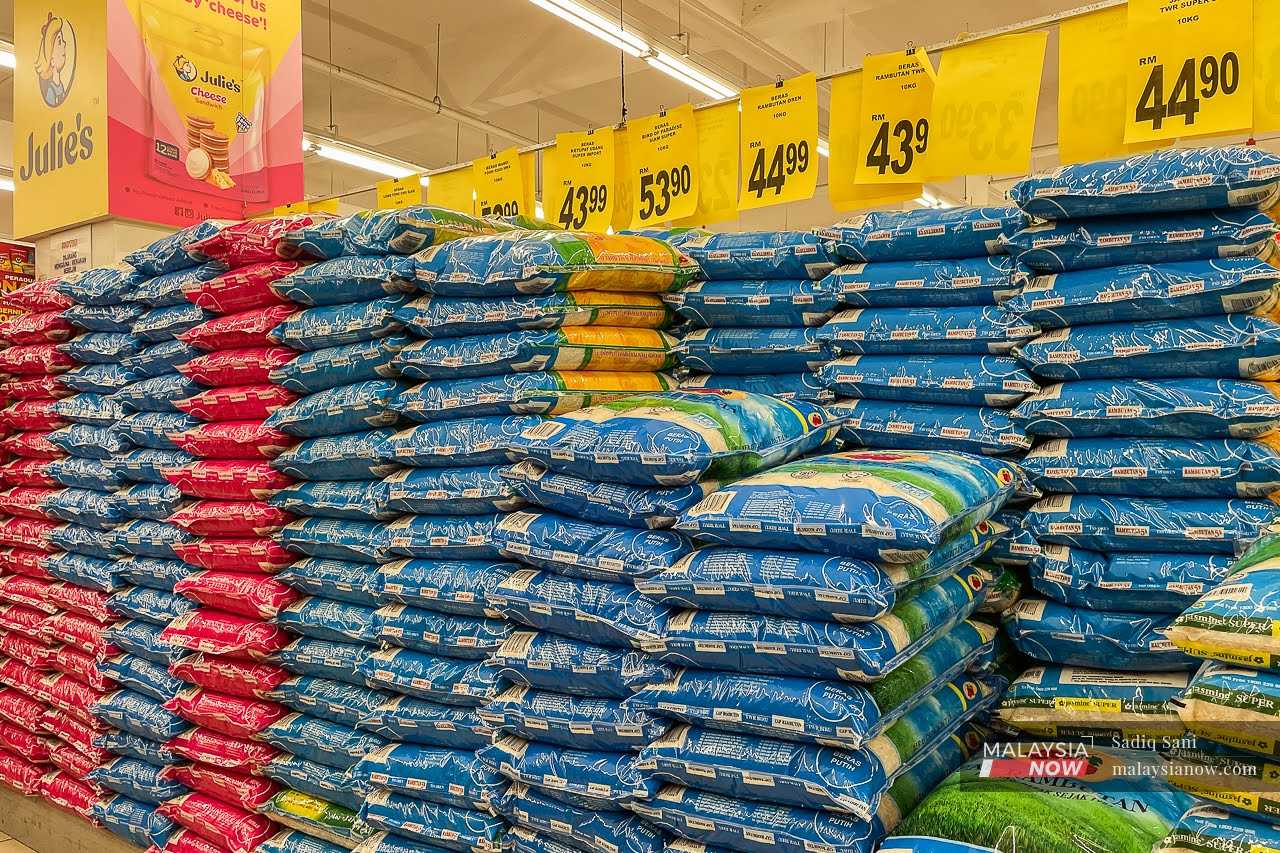Rice industry sinking, farmers warn ahead of Putrajaya gathering to protest floor price
They say the amount under discussion is disproportionate to their current operating costs following the removal of diesel subsidies last year.
Just In
Padi farmers have strongly objected to the setting of a RM1,300 per tonne price floor for padi which they say is disproportionate to the current operating costs and the economic burden they bear.
Speaking to MalaysiaNow, they also warned that the country's padi industry would be ruined if the government did not take the matter in hand.
Abdul Rashid Yob, chairman of the Malaysian Padi Farmers Brotherhood Organisation (Pesawah), said farmers had been struggling to meet their operating costs since the withdrawal of diesel subsidies in June last year.

He also said that the distribution of fleet cards had not been resolved.
He said farmers should be eligible for the cards as they used heavy machinery like ploughs and tractors.
"When fleet cards are not available, the cost of operations increases by 30%. This is what is stressing us out," he said, adding that some farmers had seen operating costs increase by up to 120%.
Padi farmers recently held a series of demonstrations, calling for an increase in the price floor for padi and urging the government to resolve the situation.
Ronald Kiandee, who is in charge of Perikatan Nasional's agriculture and food security portfolio, said the protests were a clear signal that the government was not concerned about the hardships of rice farmers.
Agriculture and Food Security Minister Mohamad Sabu said on Monday that discussions would be held with all relevant parties on setting the price floor for padi at RM1,500 per tonne.
However, Pesawah treasurer Muhammad Firdaus Abu Bakar said that farmers had been struggling since the onset of the Covid-19 pandemic.
Even after the pandemic, he said that other challenges emerged such as the withdrawal of diesel subsidies and an increase in rental for machinery and the price of seeds.
He said the cost of renting a tractor had gone from RM220 to RM380 while seeds which once cost RM45 were now priced at RM58.
"This isn't even taking into account the cost of fertiliser, pesticide and so on," he said.
"That's why the farmers are upset, what more when the government wants to keep rice at RM26 but there is none to be had on the market."

Firdaus also said that farmers were still waiting for the government to implement the harvesting incentive of RM50 per hectare per season introduced last May.
A farmer in Kedah said he had had to resort to borrowing in order to manage his padi fields.
Ismail Yaakob, 59, said even the previous floor price of RM1,700 was not enough to cover the production costs.
He said he also had to bear the cost of the crops lost to the frequent floods in the state.
"At the very least, the government should appreciate padi as the traditional crop of the Malays," he said.
"They have to find a way to save this industry, otherwise soon there will be no more local rice."
Rashid of Pesawah said the price controls of RM2.60 per kg set in 2008 were no longer relevant given the increase in costs for farmers.
He urged the government to review rice prices to ensure the sustainability of local crops.
He said the group had no official data but had observed a drop in the number of farmers which he attributed to an increase in debt and operating costs.
He said farmers harvest their crops twice a year but make an average of RM350 per month.
"That isn't even B40 anymore," he said referring to the bottom 40 group.
He added that the demonstrations would continue, culminating in Putrajaya next week.
"Unofficially, we will gather in Putrajaya next Wednesday," he said.
"We expect 10 busloads of farmers to join the protest and hand over a memorandum at the ministry building."
Subscribe to our newsletter
To be updated with all the latest news and analyses daily.



